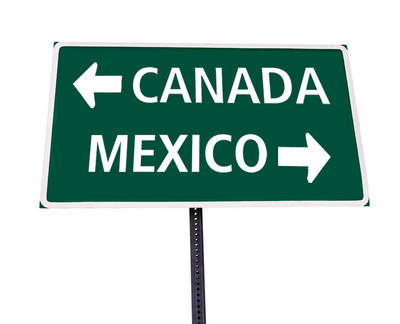Going to Mexico or Canada after May 31? You’ll need a passport
The passport, once the calling card of the well-traveled and the globe-trotting, is about to become as commonplace as a driver's license or library card.
That's because, beginning June 1, U.S. citizens will need one to travel just about anywhere outside the United States, including the formerly no-passport-required destinations of Canada and Mexico and countries in the Caribbean.
With summer travel season soon to arrive, that new regulation may throw a cardboard-covered 3-by-5-inch monkey wrench into the vacation plans of some Americans.
The new regulation is a product of the Sept. 11, 2001 terrorist attacks. One of the federal 9/11 commission's key findings, says Ivette Rodriguez, customer service manager for the U.S. State Department's Miami passport agency, was that a way should be found to secure U.S. borders -- including our borders with Canada and Mexico -- while, at the same time, not impeding tourism or people who have a legitimate reason to enter the United States.
The result: The Western Hemisphere Travel Initiative. The first phase of the initiative took effect in January 2007 when, for the first time, Rodriguez says, U.S. citizens needed a U.S. passport in order to travel by air anywhere in the Western Hemisphere.
On June 1, the remaining provisions of the initiative kick in. Those expand the passport requirement to land and sea travelers, too, meaning people who drive to and from the United States into Canada and Mexico, or who take cruises to and from those countries.
The initiative is a significant change from the past. Americans returning from Canada, for example, previously had to show only a driver's license to prove identification and a birth certificate to show citizenship or, in even longer-ago days, simply needed to declare U.S. citizenship. Now, neither such documents nor a declaration alone will be enough.
For most Americans, a standard U.S. passport will become the travel document of choice, since, Rodriguez says, it proves both identity and citizenship. But the State Department also has unveiled a new wallet-sized passport card. That card is less expensive than a standard passport, Rodriguez says, but, unlike a standard passport, can be used only for land and sea travel within the Western Hemisphere and can't be used for international air travel.
The passport card also may prove to be a handy option for travel to places such as the U.S. Virgin Islands, where a passport isn't technically required but often is requested by hotels, cruise lines or other travel providers, Rodriguez says.
The new requirements will help to standardize the confusing array of papers travelers have been using to return to the United States. Joanne Ferreira, a spokeswoman for U.S. Customs and Border Protection, said border agents can "see around 8,000 documents," including drivers' licenses from every state, birth certificates from every county and, in some cases, even birth certificates from individual hospitals.
Now, including passports, passport cards and a mere handful of other approved travel documents, "we've narrowed everything down to six," she says.
The new procedures, it is hoped, will lessen the chances of somebody illegally getting into the country via a forged driver's license or birth certificate. In addition, the initiative should expedite travel by making it easier for border personnel to inspect documents.
Toward that end, 39 busy ports of entry will, by June 1, be equipped with electronic devices that can read a passport card's radio chip. While no information is stored on the chip itself, the chip will point the agent to a separate, secure database on which a traveler's personal information is stored.
The, Ferreira says, will help to "make border crossings more secure and efficient."
Conversely, travelers who don't have a passport, passport card or other approved document after June 1 "may face delays as (CBP) officers will confirm identification," she says.
Ferreira says travelers so far seem to support the initiative. "We're getting very good feedback, because it makes travel easier," she says. "It's like peace of mind that you'll have the right documents and get through easier."
Rodriguez adds that travelers also seem to be behind the initiative once they realize that it's intended to secure borders.
"I think when we explain the rationale for the U.S. passport card and the passport book, individuals are very supportive," she says. But that doesn't mean enough of them know that the new regulations are coming. Rodriguez says about 29 percent of Americans hold a valid U.S. passport. And because getting a passport takes four to six weeks on average, those planning trips to Canada or Mexico soon may find themselves blindsided.
Maria Lilibeth Ruiz, director of marketing for Prestige Travel American Express, says she has not noticed questions about the initiative from prospective travelers. But, she adds, travel counselors routinely ask clients whether they have passports if they're planning a trip that would require one.
And among the rest of the public? "I don't know," she says.
Even if a trip isn't imminent, Ruiz notes, it never hurts to apply for a passport now so that it's ready to be tucked into a carry-on bag whenever a traveler leaves home.
"You just never know," she says. "To me, a passport is the best identification one can carry."
Contact reporter John Przybys at jprzybys@reviewjournal.com or 702-383-0280.

















